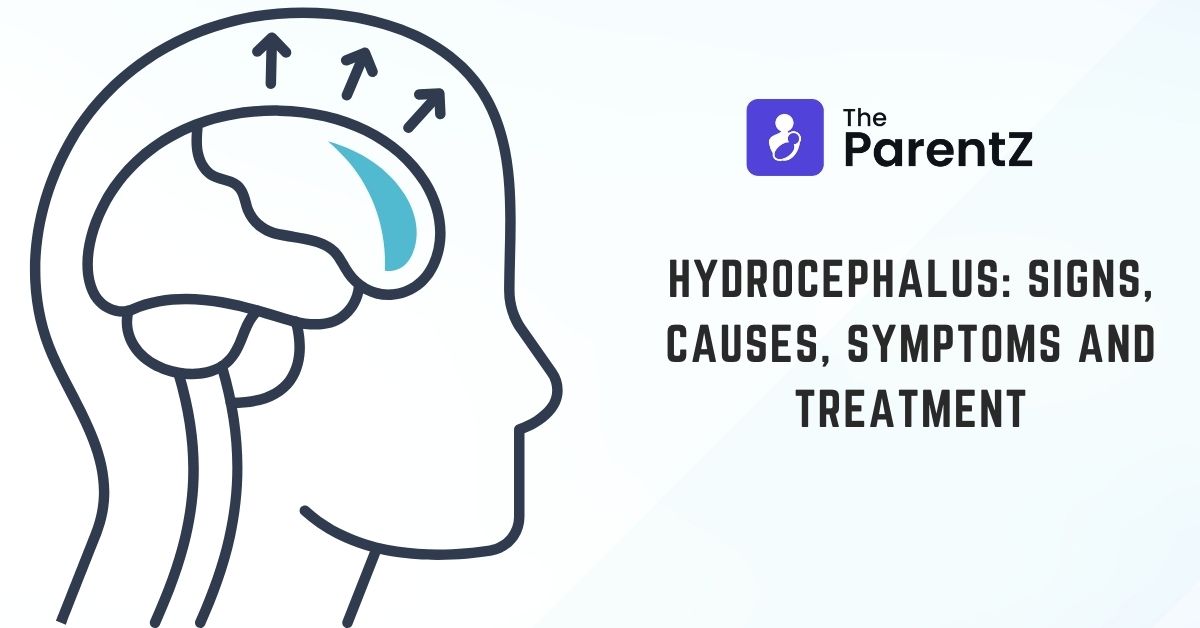What is hydrocephalus?
There is a fluid which surrounds the brain and the spinal cord to protect them from shock and provide nutrition known as the cerebrospinal fluid. When there is a collection of this fluid in hollow spaces of the brain, it is known as hydrocephalus. The hollow places are known as ventricles which produce and store this cerebrospinal fluid. When there is a collection of excess cerebrospinal fluid, it puts pressure on the brain and leads to clinical issues.
Hydrocephalus affects all ages of children and affects both the sexes. Hydrocephalus may be present at birth of the child itself or develop during the later years of the child.
What are the signs and symptoms of hydrocephalus?
The signs and symptoms of hydrocephalus are due to excessive pressure on the various areas of the brain. These include-
- The child becomes fussy and irritative.
- The child always appears tired.
- The child becomes a fussy eater, loses appetite and refuses to feed.
- Child has sudden vomiting without necessarily stomach problems.
- The eyes of the child become fixed on a downwards gaze.
- There is a slowing of the growth and development of child.
- For younger babies less than a year who have their soft spot of the skull open, there is bulging of these spots. There is also an increase in skull size and visible bulging veins.
- Older children almost always have a complaint of headache which does not go away.
What can cause hydrocephalus?
Hydrocephalus is caused due to accumulation of fluid in the brain which may happen due to two main reasons-
- Excessive production of fluid
- Decreased drainage of fluid
The child may have hydrocephalus from birth which is congenital or develop it later which is acquired.
Some conditions which may lead to hydrocephalus are:
- Neural tube defects
- Spina bifida
- Infection of the brain
- Blockage of pathway of fluid
- Bleeding into the ventricles
- Tumour of brain
- Infection of pregnancy
Is hydrocephalus dangerous?
Yes, hydrocephalus is a dangerous condition and you should consult a doctor immediately if you see your child developing any signs mentioned above.
What is the treatment of hydrocephalus?
The treatment of hydrocephalus aims to relieve the pressure on the brain. First, the underlying cause of hydrocephalus is treated which is the definitive treatment. Secondly, procedures may be performed to drain the excessive fluid accumulated in the brain. These procedures include:
- Ventriculoperitoneal shunt: A shunt or an artificial pathway is created between the ventricles and the peritoneal cavity ie. between the space of the brain and the space of the gut. Excessive fluid is drained to the gut from where it is absorbed into the bloodstream.
- Endoscopic third ventriculostomy: A small hole is made to drain the excessive fluid in the bottom of the brain. This drained fluid is absorbed into the bloodstream.
What should you know as a parent?
- Hydrocephalus is a serious condition which needs immediate medical attention.
- It is a treatable condition but may need multiple procedures over a period of time.
- You should never miss an appointment with your child’s concerned doctor.
- You should always give the medication exactly as prescribed by your doctor.
- Your child may need physical therapy or occupational therapy in the future .





Be the first one to comment on this story.